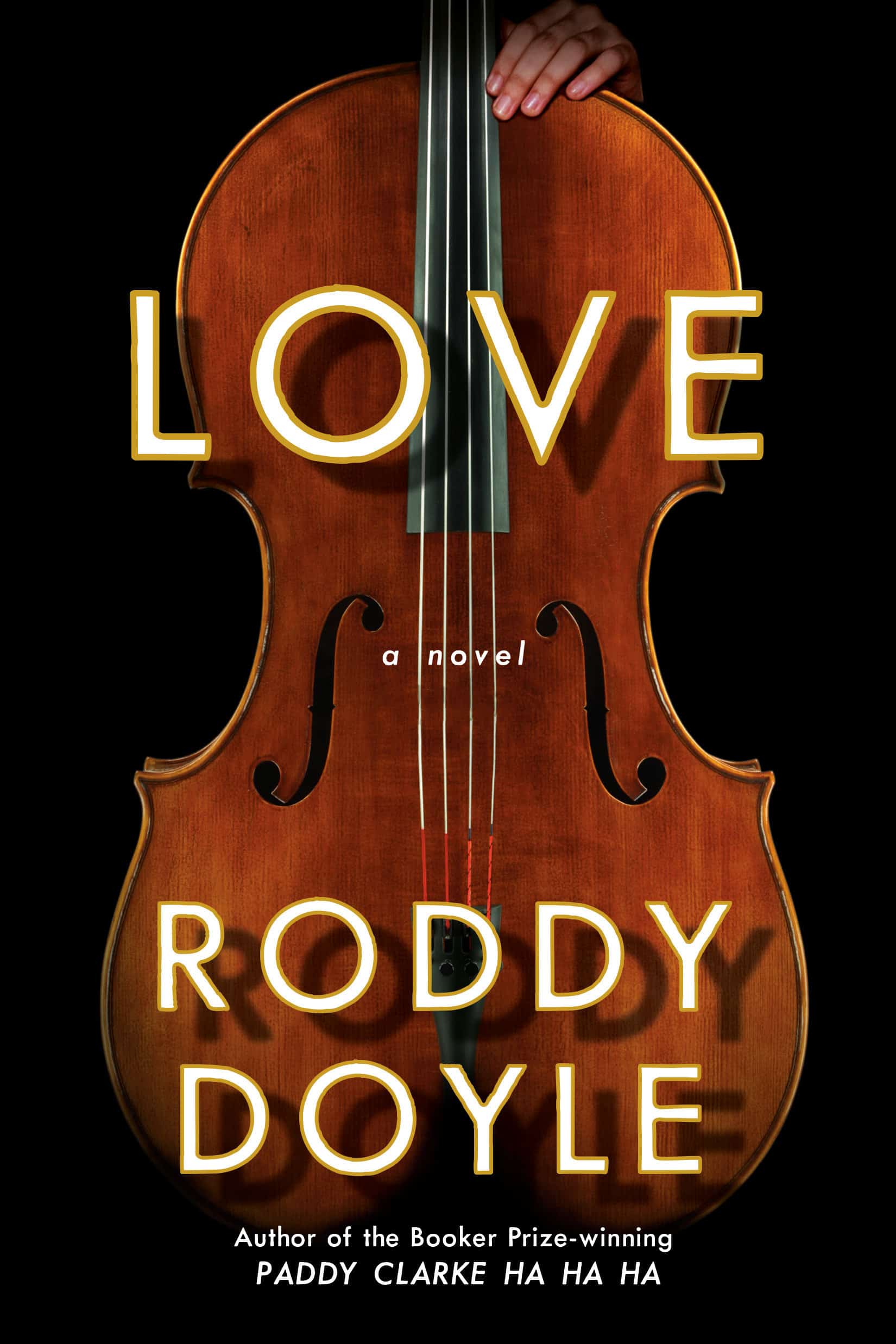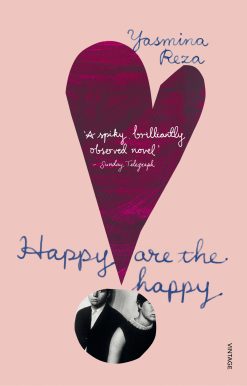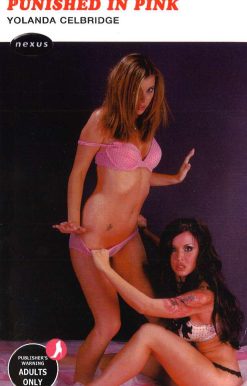Description
Two old friends reconnect in Dublin for a dramatic, revealing evening of confidences–some planned, some spontaneous–in this captivating new book from the author of the Booker Prize-winning Paddy Clarke Ha Ha Ha.Old friends meet up on a summer’s evening at a Dublin restaurant. Both are now married with grown-up children, and their lives have taken seemingly similar paths. But Joe has a secret he has to tell Davy, and Davy, a grief he wants to keep from Joe. Both are not the men they used to be.Neither Davy nor Joe know what the night has in store, but as two pints turns to three, then five, and the men set out to revisit the haunts of their youth, the ghosts of Dublin entwine around them. Their first buoyant forays into adulthood, the pubs, the parties, broken hearts and bungled affairs, as well as the memories of what eventually drove them apart.As the two friends try to reconcile their versions of the past over the course of one night, Love offers a moving portrait of what it means to put into words the many forms love can take throughout our lives.
Additional information
| Weight | 0.34 kg |
|---|---|
| Dimensions | 2.27 × 14 × 20.96 cm |
| PubliCanadation City/Country | Canada |
| Author(s) | |
| Pages | 336 |
| Publisher | |
| Year Published | 2020-6-23 |
| Imprint | |
| ISBN 10 | 0735279888 |
| About The Author | RODDY DOYLE was born in Dublin in 1958. He is the author of many acclaimed novels, including The Commitments, The Van (a finalist for the Booker Prize), Paddy Clarke Ha Ha Ha (winner of the Booker Prize), The Woman Who Walked Into Doors, A Star Called Henry, The Guts and Love. Doyle has also written several collections of stories, as well as Two Pints, Two More Pints and Two for the Road, and several works for children and young adults including the Rover novels. He lives in Dublin. |
| Excerpt From Book | He knew it was her, he told me. He told me this a year after he saw her. Exactly a year, he said. -Exactly a year?-That’s what I said, Davy. A year ago – yesterday.-You remember the date?-I do, yeah.-Jesus, Joe.He saw her at the end of a corridor and he knew. Immediately. She was exactly the same. Even from that far off. Even though she was only a shape, a dark, slim shape – a silhouette – in the centre of the late afternoon light that filled the glass door behind her.-She was never slim, I said.He shrugged.-I don’t even know what slim means, really, he said.He smiled.-Same here, I said. -I just said it, he said. –The word. She was a tall shape – instead.-Okay.-Not a roundy shape.-She’s aged well, I said. –That what you’re telling me.-I am, he said. –And she has.-Where was the corridor? I asked him.-The school, he said.-What school?-The school, he said again.-We didn’t know her in school, I said.I knew he didn’t mean the school we’d both gone to. We’d known each other that long. I’d said it – that we hadn’t known her in school – to try to get him to be himself. To give back an answer that would get us laughing. He was the funny one.-My kids’ school, he said.-Hang on, I said. –It was a parent-teacher meeting?-The woman of your dreams stepped out of the sun and into a parent-teacher meeting?-Yep.-Thirty years after the last time you saw her, I said. –More, actually. Way more. Thirty-six or seven years.-Yeah, he said. –That’s it, more or less. What did you say there? That she stepped out of the sun. -I think so, yeah.-Well, that’s it, he said -That’s what happened. She did. I didn’t live in Ireland. I went over to Dublin three or four times a year, to see my father. I used to bring my family but in more recent years I’d travelled alone. The kids were grown up and gone and my wife, Faye, didn’t like flying, and she wasn’t keen on the drive to Holyhead and the ferry. -Your dad never liked me, so he didn’t. -He did.-He did not, she said. -He thought I was a slut. He said it, sure.-He didn’t say that.-More or less, he did. You told me that, yourself, remember. I’m not making it up. He never liked me, so I won’t be going around pretending I like him. I hate that house. It’s miserable. -She kissed me, Joe said now.-In the school?The man I knew – I thought I knew; I used to know – would have answered, ‘No, in the arse,’ or something like that.-Yes, he said. –She remembered me. I didn’t know Joe well. I used to. We left school for good on the same day. He got work; I went to college, to UCD. He had money, wages – a salary. I had none until after I’d graduated. But we kept in touch. We both lived at home, a ten-minute walk from each other. We listened to records in my house about once a week, in the front room. He bought most of the records; mine was the house where we could blast them out. We played them so loud we could put our hands on the window glass and feel the song we were hearing. My mother was dead and my father didn’t seem to mind. He told me years later he just wanted to see me happy. He endured the noise – the Pistols, Ian Dury, the Clash, Elvis Costello – because he thought it made me happy. I’d have been happy if he’d hammered at the wall with a shoe or his fist and told me to turn it fuckin’ down. I’d have been happy if I’d felt I had to fight him. We went drinking, myself and Joe, when I had the money. At Christmas and in October, when I came back from working in West Germany and London, before I had to spend the money I’d earned on books and bus fares. We’d get quickly drunk and roar. I rushed straight into anger. I thumped things, and myself. I let myself go, glimpsed the man I could become. I pulled back, and copied Joe. He drank, I drank. He laughed, I laughed. I roared when he roared.-She remembered you?-Yeah, he said. –She did. Immediately. Like I said. I looked at him again. I could see why she’d have recognised him. The boy – the young man – was still there. His head was the same shape. He’d worn glasses back then and he still did – or, he did again – the same kind of black-framed glasses. He still had his hair. It was grey now, most of it, but it had never been very dark. He’d put on weight but not much, and none of it around his face and neck. -Where were you? I asked him.-In the school, he said. –I told you.-Where, though?-Outside the maths room, he said. –Waiting.-For your turn with the teacher.-Yeah, he said. –There were four or five people – mostly mothers – ahead of me. And I’d no one else to see – I’d seen all the others. We divided the list.-Hang on, I said. –Trish was there as well?Trish was his wife.-Yeah, he said. –She was somewhere else. Queueing up for another teacher. -You kissed the love of your life while Trish was in the building?-Big building, he said. –It’s a fuckin’ school – in fairness.That was more like the man I thought I knew. The man I’d wanted to be.-You kissed her, I said.-She kissed me.-Where was Trish, exactly?-Exactly, Davy? Exactly? Is this a murder investigation? -Okay.-For fuck sake, Davy.-Okay – sorry. Go on. -The home economics room, he said. –Or wordwork. Somewhere else. We took four teachers each, to get it over with as quickly as possible. Even at that, it took all afternoon. It’s the only chance the teachers get to talk to adults. So, they fuckin’ grab it. I was lucky.-How come?-I got to meet the maths teacher, he said. –A gobshite, by the way. But I was outside his door. I just happened to be there. -And she walked in while you were waiting. -Right place, right time. Yeah. Like I said – I was lucky. -One of your kids does home economics and woodwork? -What? -You said home economics or woodwork. Trish was in one of those rooms. -You’re being Columbo again, Davy. -Lay off. -I just meant – like, for example. The rooms. Trish was somewhere else, in one of the other rooms, you know. Way off somewhere in the building. -Which kid was it? I’d never met his children and I didn’t know their names. We told each other about the kids, brought each other up to date whenever we met, and then forgot about them. I hadn’t seen Trish in twenty years. -Holly, he said. -You sure? -Yeah, he said. –Of course, I am. Fuck off. -Okay. -You’re being a bit of a prick, Davy. -I’m not. -You are. -It’s a bit of a shock. -Why does it even matter? -Okay. -To you. -I know. I’d never seen him with his children but I knew he was a good father. And I knew what that meant. He was reliable. He’d given them their routines. He’d come home at much the same time every evening. He’d picked them up from football or gymnastics and he’d always been there on time. They’d seen him filling the dishwasher and the washing machine. They’d seen him cooking at the weekends; they’d probably preferred his cooking to Trish’s. He’d served them Fanta in wine glasses on Saturday nights. He’d told them he loved them, twice a day, start and end. He’d read to them – the same book, again and again – gone swimming with them, slept on a chair beside them when they’d been kept overnight in Temple Street Children’s Hospital. He’d read about asthma, eczema, OCD, intersexuality. He wasn’t a man who didn’t know what subjects his kids had done in school. He would never have pretended that he was that man. He was right. It shouldn’t have mattered. I shouldn’t have cared. But it did. And I did. |
Only logged in customers who have purchased this product may leave a review.






Reviews
There are no reviews yet.